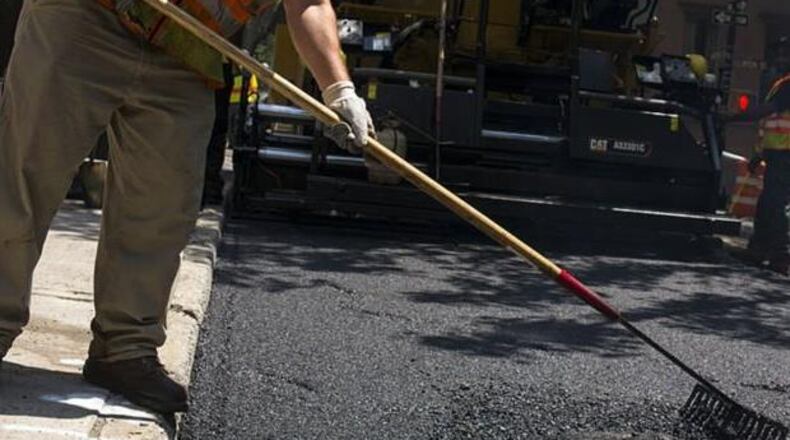Road paving, public safety and parks projects top the list of construction plans DeKalb County will pursue if voters approve the continuation of a special sales tax this November.
The package approved unanimously by the DeKalb County Commissioners on Thursday also includes a tax cut expected to save homeowners $1 billion over six years.
The county is seeking to extend its Special Purpose Local Option Sales Tax, or SPLOST, which is a 1-cent sales tax that pays for capital improvement projects in unincorporated DeKalb and in the cities. The county also wants to extend a 1-cent sales tax that reduces property taxes for certain homeowners. Both were first approved in 2017 and expire next year unless voters approve their continuation.
Commissioners and CEO Michael Thurmond have credited the first round as key to helping the county catch up on long-delayed capital projects. They said the second round could be just as transformative.
“This might be my best day as CEO,” Thurmond said.
The special purpose tax is expected to generate about $850 million over six years. Most of that — 58% — would go to the county. The rest would be split between 12 cities in the county based on population. (Atlanta doesn’t participate.)
The county’s final project list wasn’t decided until last week, just before commissioners voted in a special called meeting. Administration officials have been deliberating on the list for months, whittling down a $2.5 billion wishlist to $496 million, the county’s projected share of the proceeds. The cities will each independently come up with their own projects.
Commissioner Steve Bradshaw said he felt good with what the county was prioritizing.
“I think this document is the result of some tough choices, but the right choices,” Bradshaw said.
Like with the first special purpose tax, the bulk of the money will go towards transportation projects. The county is setting aside $195 million to resurface 200 miles of roads throughout DeKalb. The county also has plans to add 25 miles of sidewalks and 15 miles of bicycle paths.
Here’s what else is included on the county’s project list:
- Animal shelter expansion: The county’s shelter is overcrowded, so much so that it’s been forced to euthanize some animals for space reasons over the last year.
- Mental health facility: The county is setting aside $15 million to build a new 36-bed mental health crisis center. That would only cover about 60 percent of the costs, however. The county plans to lobby other jurisdictions that use DeKalb’s facilities to chip in on the remaining costs. If that doesn’t pan out, the county could pursue other funding sources to cover the remaining costs.
- Bobby Burgess building replacement: The building on Memorial Drive near Interstate 285 is home to several government offices and has been targeted for repair or replacement for years — it was part of the last SPLOST plan, too. Since then, some operations have moved out of the facility, which officials now say needs to be demolished. Before that can happen though, some offices still need to move elsewhere. The county plans to combine the money set aside from the first special sales tax with money collected from the second to complete the project.
- Libraries: The county is setting aside $12.5 million for library renovations. Commissioner Michelle Long Spears made a last-minute pitch to increase that total by $2.5 million but others were reluctant to make changes that would require decreasing spending elsewhere. Libraries may end up getting more funding though, because she called on commissioners to use some of their discretionary funds (each will get $1 million from the special purpose tax to spend on projects in their district) towards the library.
- Fire stations: $55 million is set aside to renovate and build new fire stations.
- Community facilities: Nearly $51 million is set aside for parks and recreation facilities, plus an additional $21.7 million for multi-generational facilities (places like senior or teen centers).
At this stage, the county has simply identified its top priorities. Specific timelines for completing any of the projects will come later, pending voters’ approval.
Similarly, the property tax for homeowners who qualify for a homestead exemption will take effect in 2024.
About the Author
Keep Reading
The Latest
Featured



